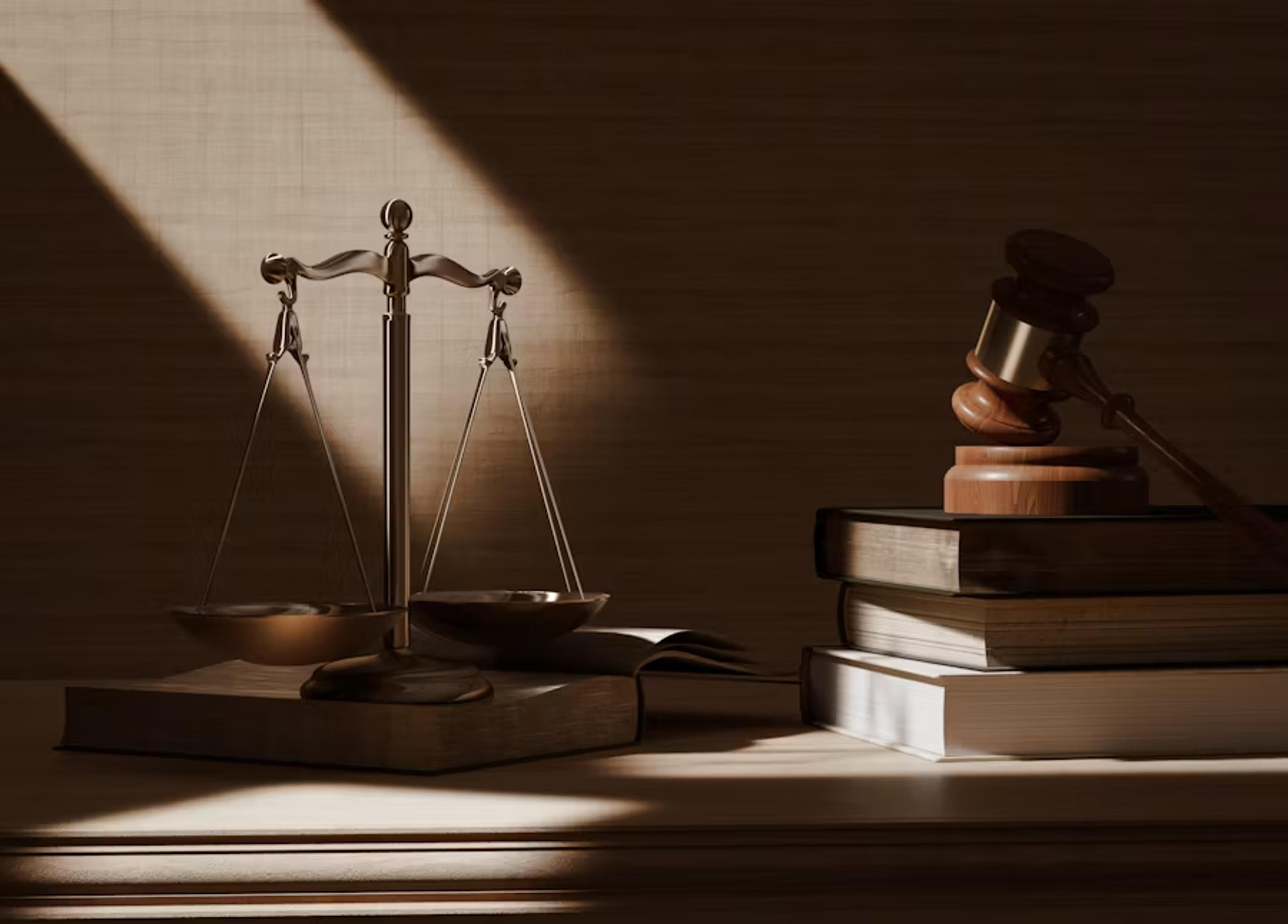How Many Letters of Recommendation for Law School: A Comprehensive Guide
Wondering how many letters of recommendation you need for law school? This comprehensive guide breaks down everything you need to know—featuring expert insights from seasoned admissions coach Indrani S, who brings over a decade of experience helping applicants craft standout applications.

By Indrani S.
Partner with a former Stanford Law School Admissions Officer!
Posted July 2, 2025

Join a free event
Learn from top coaches and industry experts in live, interactive sessions you can join for free.
Table of Contents
Why Letters of Recommendation Matter for Law School Applications
Why do law schools even require recommendation letters? These letters serve as an endorsement of your character, academic abilities, and potential as a law student. Admissions committees want verification that you have the traits and skills necessary to be successful in their program and later in your legal career. Letters of recommendation can help them assess your qualifications beyond your academic transcripts, resume, and test scores.
Admissions committees are trying to determine what kind of student you are (or were) first and foremost. They can add another dimension to your transcript, describing your personality, critical thinking and communication skills, writing abilities, and more than just a grade. If possible, you can choose from a professor you took a lecture-based class from, a thesis advisor, or someone you took a project-based class from. This way, your letters will describe different aspects of your attributes.
If you have been out of college or graduate school for several years, don’t worry! There are many people in the same boat, and you can get letters from your manager or people you volunteered with, for example. A letter from a supervisor at a previous job can speak to your work ethic and leadership abilities, while a letter from a volunteer organization can highlight your commitment to community service. These types of experiences can demonstrate to admissions committees that you have a well-rounded background and are capable of contributing to the law school community in meaningful ways.
As a former Associate Director of Admissions at Stanford Law School, I’ve read thousands of law school applications and know firsthand how much weight admissions committees place on strong letters of recommendation. These letters don’t just complement your application—they can provide key insight into your academic potential, intellectual maturity, and character.
In this guide, I’ll walk you through exactly how letters of recommendation fit into your law school application, how many you should submit, and how to choose the right recommenders to strengthen your candidacy.
What Should Be Included in a Law School Recommendation Letter?
Each law school recommendation letter should include specific details about your abilities, qualifications, and potential as a law student:
- Specific examples of your work or experiences with the writer and how they relate to your potential as a law student
- Anecdotes or stories that speak to your character and work ethic
- A summary of your academic achievements and potential, if applicable
- A statement of endorsement for your admission to law school
- Contact information for the writer, including their title, email, and phone number
Aside from the aforementioned details, other important factors should be included in a law school recommendation letter. One of these is the length of time that the writer has known you. This information is crucial as it gives the admissions committee an idea of the depth and quality of your relationship with them. Another important detail is the context in which the writer knows you. This could be in a professional or academic setting and can provide valuable insight into your character and potential as a law student.
What Admissions Committees Look for in Letters of Recommendation
Now that you understand the purpose and optimal content of recommendation letters, it's important to know what exactly admissions committees are looking for. They want to hear from individuals who have worked with you in an academic or professional capacity and can attest to your skills, work ethic, and character. Ideally, their letter addresses your ability to succeed in law school first, and if possible, your potential as a future lawyer.
One important factor that admissions committees consider when evaluating recommendation letters is the credibility of the recommender. It is most important to choose someone who knows you best, even if that means they are less well-known in the field. However, titles can hold water too – for example, a tenured faculty member is better than an adjunct, part-time lecturer. It is also better to ask your work supervisor, who knows you well, instead of the CEO of your company whom you just say hello in the elevator.
It's also worth noting that admissions committees may pay attention to the tone and language used in recommendation letters. Letters that are overly effusive or contain exaggerated claims about your abilities may be viewed with skepticism. On the other hand, letters that are thoughtful, well-written, and provide a balanced assessment of your strengths and weaknesses can help make a positive impression on the committee.
Read: JD Recommender Criteria for the Top Law Schools
How Many Letters of Recommendation Do You Need for Law School?
The number of recommendation letters you need for law school varies by school. It's essential to check each school's requirements and preferences before you submit your application. That being said, most law schools require two to three letters of recommendation. Some schools may allow up to four letters, but you should avoid submitting more letters than required or requested.
Here are the letter of recommendation requirements for some of the top schools in the U.S.:
- Harvard Law: “Two letters of recommendation are required, but you may submit up to three. We strongly recommend that at least one letter of recommendation come from an academic source.”
- Yale Law: “Yale Law School requires at least two letters of recommendation. We strongly prefer letters from at least two professors with whom you have studied who can speak to your academic performance and who have had a chance to personally evaluate significant aspects of your academic work. Letters from employers, college deans, coaches, chaplains, colleagues, and others may be helpful but are not preferred. If possible, they should not replace letters from two faculty recommenders.”
- Stanford Law: “Stanford requires that at least two and no more than four letters of recommendation…Recommenders should be instructors who have personal knowledge of your academic work, preferably those who have known you in a seminar, small class, tutorial program, or the like. If you have been out of school for a significant period you may substitute one letter from an employer or business associate. Sometimes these applicants find it difficult to obtain even one academic recommendation; in that case, you may submit two nonacademic letters."
- UCLA Law: “UCLA School of Law requires that applicants submit two letters of recommendation. At least one letter should be from someone familiar with the applicant's academic work, if at all possible.”
- UChicago Law: “We require two letters of recommendation, but we will accept up to four… In reviewing letters of recommendation, the Admissions Committee is looking for insight into a candidate's academic promise, as well as personal qualities such as intellectual curiosity, enthusiasm, and commitment. We strongly recommend you submit at least one academic letter (e.g., from a professor, teacher's assistant, advisor) who can offer an informed assessment of your academic ability.”
- UC Berkeley Law: “You may submit up to 4 recommendation letters. Most applicants submit 2-3. They should be from academic sources who know you and your classroom work well. Ideally, each letter will provide comparative comments that distinguish you from your peers. Examples of academic sources include professors, teaching assistants, graduate student instructors, and thesis advisers. Letters from work supervisors or colleagues are acceptable if you have been out of school for some time (usually, 5 years or more).”
- NYU Law: “Two letters of recommendation are required to complete your application. Candidates applying for the Root-Tilden-Kern Scholarship must submit at least one additional recommendation that addresses the candidate's commitment to public service and those applying to the Furman Public Policy Scholarship must submit a letter of recommendation that speaks to the candidate's interest in public policy.”
- Columbia Law: “Columbia requires two letters of recommendation to complete your application. Candidates completing their undergraduate degrees in 2021, 2022, or 2023: We require applicants currently in school or recently graduated (i.e., applying within less than approximately two years of receiving their degree) to submit two academic letters from faculty who can provide insight about their candidacy. Candidates who completed their undergraduate degrees in 2020 and earlier: Applicants with substantive work experience who are not recent graduates are strongly encouraged to submit one professional letter and at least one academic letter of recommendation.”
- Georgetown Law: “Georgetown Law requires only one letter of recommendation, but additional letters or evaluations are welcome. If at all possible, the letter of recommendation should come from a professor who is able to speak to your academic work.”
- Duke Law: “Two recommendation letters are required and must be submitted through the LSAC Letter of Recommendation Service, which is included in your LSAC CAS registration. Unless you have been out of school for some time, at least one letter should come from an academic instructor who has personal knowledge of your performance and potential. A second letter should come from someone who can address your interpersonal skills, leadership, and involvement, such as a supervisor or advisor from a job, internship, or student organization. Additional letters from either source may also be submitted.”
Tips for Requesting and Managing Your Law School Recommendation Letters
Requesting and managing law school recommendation letters can be a bit of a logistical challenge. Here are some tips to help make the process smoother:
- Give your writers plenty of time to write and submit their letters (ideally, at least four to six weeks).
- You may consider asking more people than necessary in case one of them fails to follow through.
- Provide them with the necessary information and resources, including deadlines, submission instructions, a copy of your resume, and perhaps a paper or project that you did in their class to refresh their memory.
- Follow up politely but persistently to ensure they're on track to meet your deadlines.
- Thank them for their time and effort, and keep them updated on your law school application progress.
Another important tip is to choose your recommenders wisely. The ideal sources for law school recommendation letters are individuals who can speak to your academic abilities, work ethic, and potential as a law student. These individuals may include professors, employers, or mentors you've worked with in a professional capacity or volunteered alongside. It's essential to choose individuals who can provide a personalized and detailed account of your skills and character. You may note above that most schools emphasize the importance of academic letters.
Additionally, consider providing your recommenders with a list of your accomplishments and experiences that you would like them to highlight in their letters, your reason for attending law school and your goals for after you graduate. This can help ensure that they touch on the most important aspects of your candidacy and provide a strong endorsement of your abilities. This can also stave off the recommender’s inclination to ask for your personal statement, which you probably have not completed yet by the time they are writing their letter.
Finally, consider the timing of your request for recommendation letters. You should give your potential recommenders ample time to write a thoughtful and detailed letter. It's recommended that you ask for letters at least a month before the application deadline and provide your recommenders with all the necessary information, such as the application deadline and any specific requirements for the letter. If you are asking a professor, try and do it before school finishes for the year so that they are still in the academic mindset and haven’t gone away for the summer. Also, remember that popular professors are asked for letters all the time, and they may have to say no to some requests because they don’t have time. This is why asking as early as possible is the best strategy.
How to Ensure Your Law School Recommendations Stand Out
You want your law school recommendations to stand out among the many that admissions committees read. To achieve this, you should encourage your recommenders to use specific examples and anecdotes to illustrate your strengths. Ideally, you want your recommenders to say things that you couldn't say yourself without coming across as conceited – i.e., “Matthew was one of the best writers I have ever had in a class.” or “Grace’s work ethic, skill, and dedication to law was unparallelled over the course of the summer.”
How to Follow Up on Your Letters of Recommendation for Law School
Following up on your recommendation letters can help ensure that they're received and processed by LSAC. You can check the status of your letters in your LSAC portal, and if they haven’t been uploaded by the deadline you provided, politely reach out to remind them.
Common Mistakes to Avoid When Submitting Your Law School Recommendations
There are several common mistakes to avoid when it comes to submitting your law school recommendation letters:
- Submitting more letters than required or requested
- Choosing writers who cannot speak to your qualifications or potential as a law student
- Missing deadlines or failing to follow up with your writers
- Not providing the necessary information or resources to your writers
- Not giving your recommenders ample time to write a letter
- Not thanking your writers for their time and effort on your behalf
The Bottom Line
In sum, recommendation letters are an important part of the law school application process. Understanding how many letters you need, who to ask, and what should be included can help you craft a compelling application that highlights your strengths and potential as a law student. By following these tips and guidelines, you can ensure that your letters of recommendation make a valuable impact on your law school applications.
Need Help With Your Law School Letters of Recommendation?
Choosing the right recommenders and guiding them effectively can make or break your law school application. As a former admissions officer at Stanford Law, I’ve helped hundreds of applicants secure standout letters that led to top-tier acceptances. Don’t leave it to chance. Work with a law school admissions coach who knows exactly what committees want to see.
Indrani S.is a law school admissions coach with years of experience helping applicants secure spots at top law programs. As a former Associate Director of Admissions at Stanford Law School, she has reviewed thousands of applications and knows exactly what makes a letter of recommendation stand out.
She has helped applicants gain admission to top programs like Columbia Law, NYU Law, and the University of Virginia School of Law by providing strategic guidance on every component of their applications—including how to choose the right recommenders. Book a free intro call with Indrani and take the next step toward submitting a strong, well-rounded law school application.
FAQ's
What is a good letter of recommendation for law school?
- A strong letter of recommendation for law school highlights your academic abilities, critical thinking, communication skills, and potential for success in a rigorous legal program. It should be written by someone who knows you well and can provide specific examples of your work ethic, intellectual curiosity, and character.
How many letters of recommendation are required for law school?
- Most law schools require two letters of recommendation, though some may accept or even encourage a third. Always check each school’s specific requirements on their admissions website.
Can a coworker write a letter of recommendation for law school?
- Yes, but ideally only if they’ve supervised you in a professional setting and can speak to your skills and potential. Academic letters are typically preferred, especially for current students or recent graduates, but a professional recommender can be appropriate if you’ve been out of school for a while.
Who should law school letters of recommendation be addressed to?
- Unless otherwise specified, letters should be addressed generally—such as “Admissions Committee” or “To Whom It May Concern.” Avoid addressing a specific person unless the school explicitly asks for it.

Written by Indrani
5.0
(148)
I am a Silicon Valley native, with extensive experience at Stanford University, who has practiced as an admissions coach for over a decade. I pride myself on building strong rapport with my clients, using a warm approach and sense of humor. I am a true wordsmith, working with my clients to refine their message and build a package that best represents them. My clients become confident they are putting their best foot forward, and get results! Applying my liberal arts education and masters in counseling, I am able to distill the essence of even the most uncertain client through a collaborative process of interview, coaching, conversation, writing, and polishing the final product. From admissions essays, addenda, resumes to diversity statements, I empower my clients to face the common discomfort of self-reflection until they are able to tell their own unique story. I am also an expert at crafting well-balanced school lists, assessing who to write letters of recommendation, highlighting strengths while minimizing perceived weaknesses, interview prep, negotiating scholarship offers and more--everything one will need when embarking upon the overwhelming process of applying to law school.
Indrani has helped clients get into organizations like:
Browse hundreds of expert coaches
Leland coaches have helped thousands of people achieve their goals. A dedicated mentor can make all the difference.



















